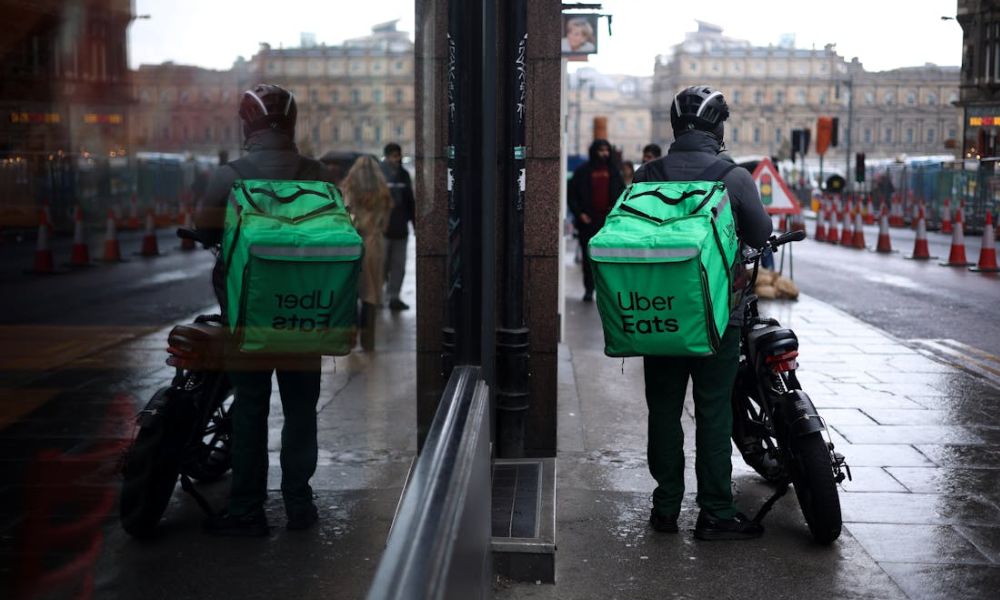Workers’ rights violations are no small matter, and Uber Eats is learning that firsthand. Following an investigation by the Seattle Office of Labor Standards (OLS), Uber Eats has agreed to pay a settlement of $15 million to over 16,000 Seattle workers, resolving allegations of illegal pay practices. Uber Eats’ landmark settlement is the largest payout in the history of the office and the first investigation under the Independent Contractor Protections Ordinance (ICP), which was established in 2022 to encourage transparency and full disclosures in matters of pay. Uber Eats was also found in violation of the App-Based Worker Minimum Payment Ordinance (ABWMP) enacted in January 2024.

This Uber Eats settlement is a landmark moment for gig workers in Seattle. (image: Pexels)
Uber Eats Settlement Adds up to $15M, Sends a Strong Message to Other Gig-Working Businesses
On August 26, the OLS announced Uber Eats’ settlement, indicating that the company was on the line to pay $15 million in compensation to workers and fines to the city. For a clearer breakdown, the company is expected to pay $14,991,841.49 to its 16,000 Seattle gig workers as a combination of back pay, damages, and penalties for the labor violations against them. Additionally, $33,680 will be paid to the city as fines for the violations that Uber Eats has been accused of.
This Uber Eats settlement is a landmark moment for workers in Seattle, as it sets a clear precedent for the minimum pay offered to workers and highlights the need for transparent communication of compensation models before they begin working. “It’s only fair that companies inform workers of their pay before work begins and honor those commitments,” OLS Director Steven Marchese said in a press statement. “If companies are unclear or fail to keep promises, workers in Seattle should know their rights and available recourse.”
The large settlement sets a strong precedent for the gig worker industry in Seattle, drawing clear lines with regard to establishing pay rates for workers. Uber Eats continues to deny any wrongdoing in the matter, but it has agreed to a settlement to put the matter to rest.
What Are the Allegations Behind Uber Eats’ Landmark Settlement?
The Uber Eats settlement marks the resolution of two investigations into the company’s labor practices, both with regard to the payment of workers. Under the ICP Ordinance, the company was required to clearly communicate its pay rates and terms before employees began work, and operate with transparency to ensure workers were compensated fairly. An OLS investigation found that the company’s “Boost” pay multiplier was not applied fairly or communicated clearly to workers.
As a result, many workers felt misled about the expected fare amounts. Further allegations were made regarding the company’s pay practices, stating that workers were sometimes paid less than expected and not provided with the legally mandated notice of their rights. This investigation resulted in a $13.56 million settlement.
The Seattle gig worker payout also included Uber Eats’ shortcomings under the ABWMP Ordinance. The regulation mandates that companies pay a minimum payment for the time spent on the job and the miles driven, even when orders are cancelled without cause.
The OLS reportedly found that Uber Eats had failed to pay workers fully in some such cases, nor were they able to provide electronic receipts or details in the pay statement for cancelled orders. Uber Eats initially made a $167,313 payment to 5,920 workers, but allegations of further violations pushed the company to add another $1.47 million into the settlement.
Seattle Sets a Strong Precedent for Gig Labor Regulations
The Uber Eats settlement may be a drop in the bucket for the company, but the payout will make a big difference to the affected workers. The ruling will also allow future workers to benefit from clear communication and company policy, which are essential in guaranteeing a healthy working relationship between an organization and its workers. Organizations are obligated to work in tandem with the HR and legal teams to ensure they are compliant with local and federal labor regulations.
A single error can add up to a hefty fine, making HR’s knowledge very relevant to any organization that wants to thrive. HR teams are not just essential for managing payroll but also in planning out pay structures and benefits offered to workers, ensuring they are understood by the employees. The Seattle gig labor ruling sets a precedent for other companies to learn from, putting worker protections at the forefront of the conversation. It also provides workers with the assurance that their concerns will be addressed, even if these proceedings do take a while to pan out.
It is also worth noting that organizations that set up internal mechanisms to allow workers to share their concerns with HR can skip the legal battles and work with their employees directly and resolve matters internally. Whether you’re a small business or a multi-million dollar one, working with HR on ensuring that all labor guidelines are met is a key consideration in the journey to success.
Subscribe to The HR Digest for more insights on workplace trends, layoffs, and what to expect with the advent of AI.





